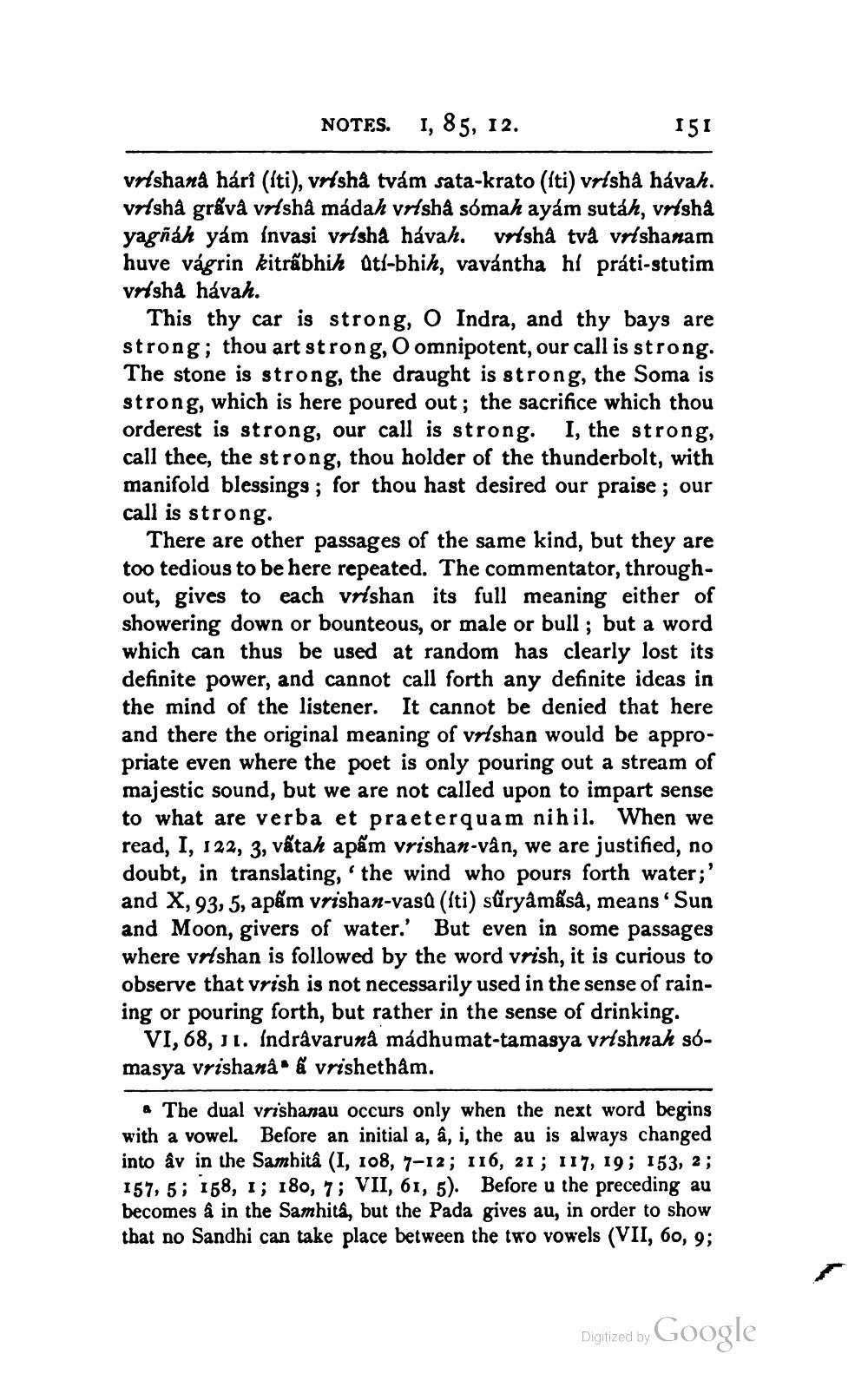________________
NOTES. 1, 85, 12.
151
vrlshaná hári (sti), vrlsha tvám sata-krato (Iti) vrlsha hávah. vrlshå gräva vrlshå mádah vrlshå sómah ayam sutáh, vrisha yagñáh yám invasi vrlsha hávah, vrlsha två vrlshanam huve vágrin kitrábhih ati-bhih, vavántha hí práti-stutim vrésha hávah.
This thy car is strong, O Indra, and thy bays are strong; thou art strong, O omnipotent, our call is strong. The stone is strong, the draught is strong, the Soma is strong, which is here poured out; the sacrifice which thou orderest is strong, our call is strong. I, the strong, call thee, the strong, thou holder of the thunderbolt, with manifold blessings; for thou hast desired our praise ; our call is strong.
There are other passages of the same kind, but they are too tedious to be here repeated. The commentator, throughout, gives to each vrishan its full meaning either of showering down or bounteous, or male or bull; but a word which can thus be used at random has clearly lost its definite power, and cannot call forth any definite ideas in the mind of the listener. It cannot be denied that here and there the original meaning of vrlshan would be appropriate even where the poet is only pouring out a stream of majestic sound, but we are not called upon to impart sense to what are verba et praeterquam nihil. When we read, I, 122, 3, vấtah apãm vrishan-vân, we are justified, no doubt, in translating, the wind who pours forth water;' and X, 93, 5, apãm vrishan-vasa (Iti) súryâmása, means 'Sun and Moon, givers of water.' But even in some passages where vrlshan is followed by the word vrish, it is curious to observe that vrish is not necessarily used in the sense of raining or pouring forth, but rather in the sense of drinking.
VI, 68, 11. Indråvaruna madhumat-tamasya vrishnah sómasya vrishana & vrishethâm.
& The dual vrishanau occurs only when the next word begins with a vowel. Before an initial a, a, i, the au is always changed into av in the Samhita (I, 108, 7-12; 116, 21; 117, 19; 153, 2; 157, 5; 158, 1; 180, 7; VII, 61, 5). Before u the preceding au becomes a in the Samhita, but the Pada gives au, in order to show that no Sandhi can take place between the two vowels (VII, 60, 9;
Digitized by
Digized by Google




